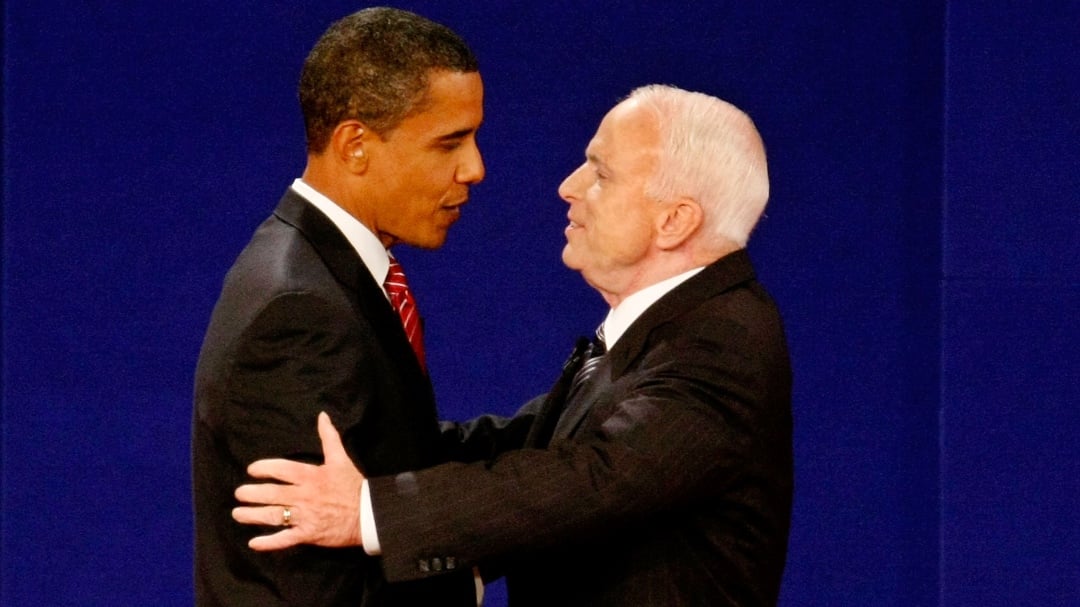
The battle of ideas should take place on our shared democratic playing field
On the day of Sen. John McCain’s passing, a video began to circulate online in which a woman tells him that she can’t trust Barack Obama. “I have read about him, and he’s not, he’s not — he’s an Arab,” she says. With respect, but without hesitation, McCain takes the microphone and answers as follows: “No ma’am. He’s a decent family man, a citizen that I just happen to have disagreements with on fundamental issues, and that’s what this campaign is all about.” In that moment, McCain, aware of the responsibility he held, avoided exploiting for political purposes the incendiary element that is fear. In this way, he showed that the driving force in politics shouldn’t be primal emotions, but rather the normal disagreements that take place within the framework of mutual respect.
The day of McCain’s passing, Obama, too, would evoke a premise that seems to have been forgotten in the Donald Trump era. He affirmed that, despite belonging to different generations and holding opposing political positions, both he and McCain shared “a fidelity to the ideals for which generations of Americans have marched and fought and sacrificed and given their lives.” Despite their rivalry, they were united by the same idea of democracy, in which political actors should share responsibility for preserving democratic institutions. Too often we have to remember that the political battle is governed by rules and must allow for shared spaces — even the ones that facilitate the necessary competition of ideas, since this is where the possibility of a political community emerges. Unlike Trump, this conception of democratic politics rejects the idea of politics as a total war. In a democracy, we always speak of political adversaries, never of enemies, and therein lies our legitimacy. We must confront adversaries with our ideas, but not question their right to defend their ideas as long as the discussion is taking place on our shared democratic playing field. It is worth repeating: This shared space is what allows for the existence of a political community, just as turning political adversaries into enemies is what destroys it.
Trump, Obama and McCain don’t represent the same concept. The current president exploits democratic institutions for his purposes, even feeding off of them like a parasite. McCain and Obama worked for these institutions as public servants. They were united by their conception of the political battle as a framework for discussion, and that was how McCain understood his patriotism. Though he made many errors, for him it was more important to defend a shared political community than to defend his own party. He knew, and demonstrated passionately, that these profound convictions would not make him weaker. He tried to articulate a Republicanism that went beyond a division into factions, and linked it again to the idea of public service. He did so, moreover, without coming across as a traitor. Perhaps his experience in the war was what allowed him to do this, but it’s unreasonable and dangerous that in a democracy, only a decorated war hero can appeal to consensus without appearing disloyal.

Leave a Reply
You must be logged in to post a comment.